An aptly-named, hyper-collage, hyper-conceptual satire on capitalistic expansion, Kluge’s film feels like a strange d.a. levy poem about space travel written on a wall in a gas station bathroom. One’s ability to enjoy this film is directly related to one’s ability/willingness to follow the conceptual tangents Kluge is weaving throughout. Particularly of note are the themes of industrial monopoly and industrial scrap. Considering that the special effects in the movie are basically appropriated pieces of trash, Kluge is painting the great cosmic expansion as a pursuit where the largest companies are making insanely massive, state-of-the-art spaceships that are simply floating scrap ready to be bought and refurbished into new floating pieces of scrap not long after being launched. None of it seems to matter to the companies so long as they maintain control.
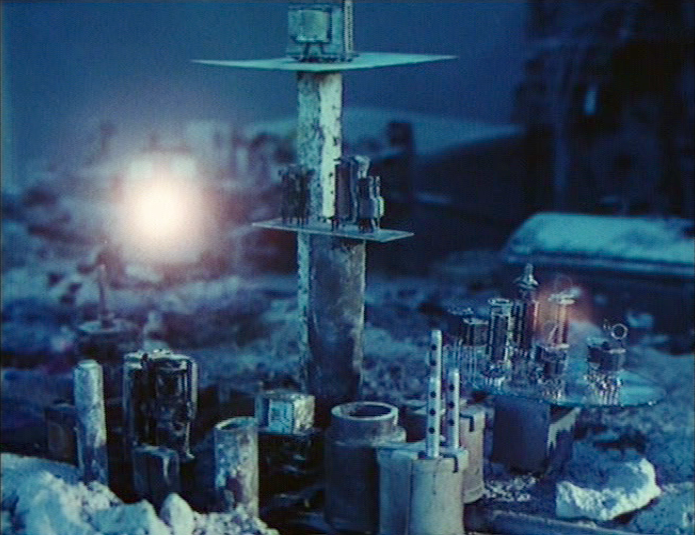 |
| Many of Kluge's effects have been cheaply rendered, though not without considerable time, effort and imagination. But his appropriated trash also conceptually serves his thematic interests. |
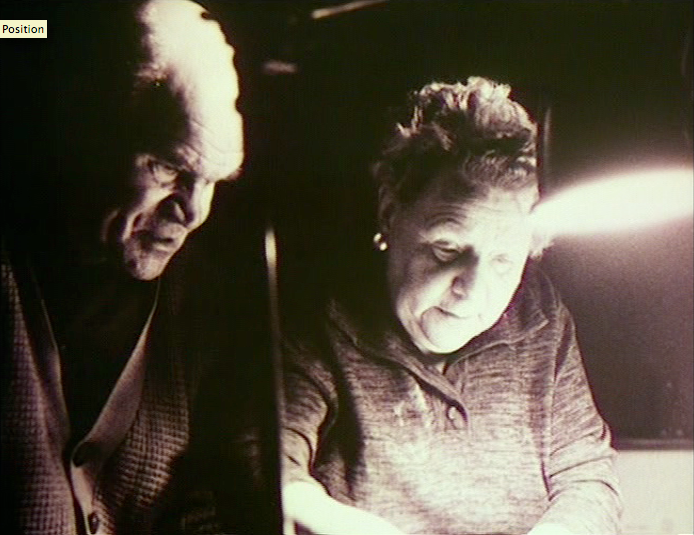 |
| The two accumulators go through their budget. Even though they act as the system acts they do not have the system's permission to act that way and thereby are a threat to the system. |
The irony for Kluge is that his movie is like the accumulators in the film: charming and imaginative but ultimately doomed because the galaxy is already owned by the big boys.
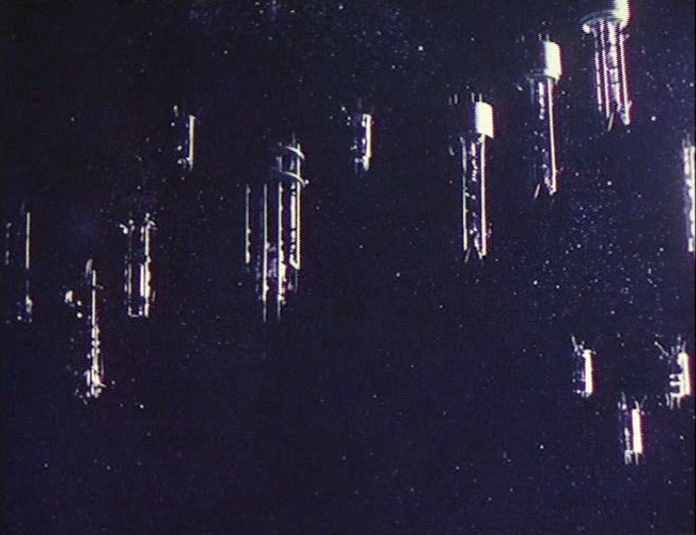
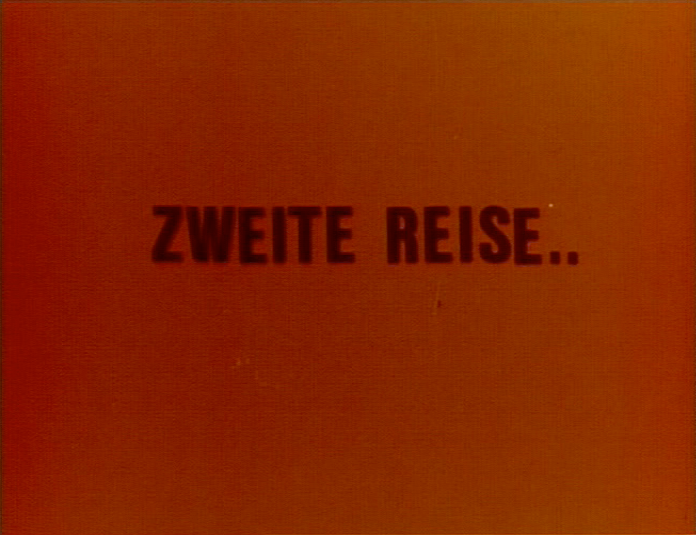
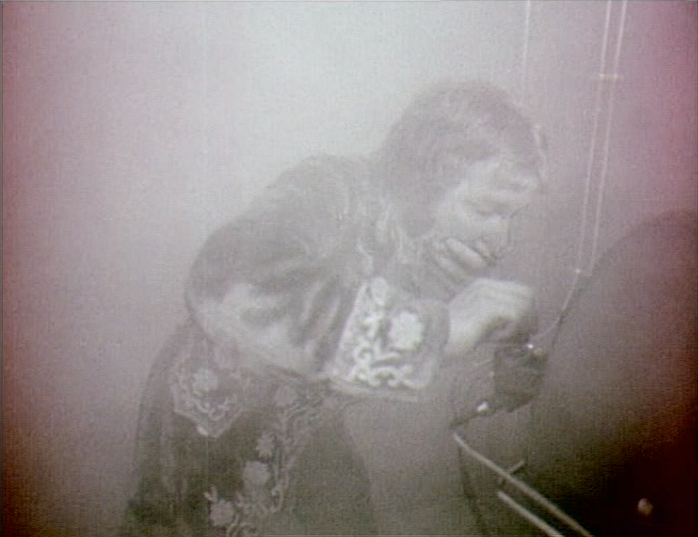
I have wanted to see this film for many years. It seems almost like a reversal of 2001: a Space Odyssey in which progress is always neat, organized and inevitable. Not easy to get an opportunity to view it, however!
ReplyDelete